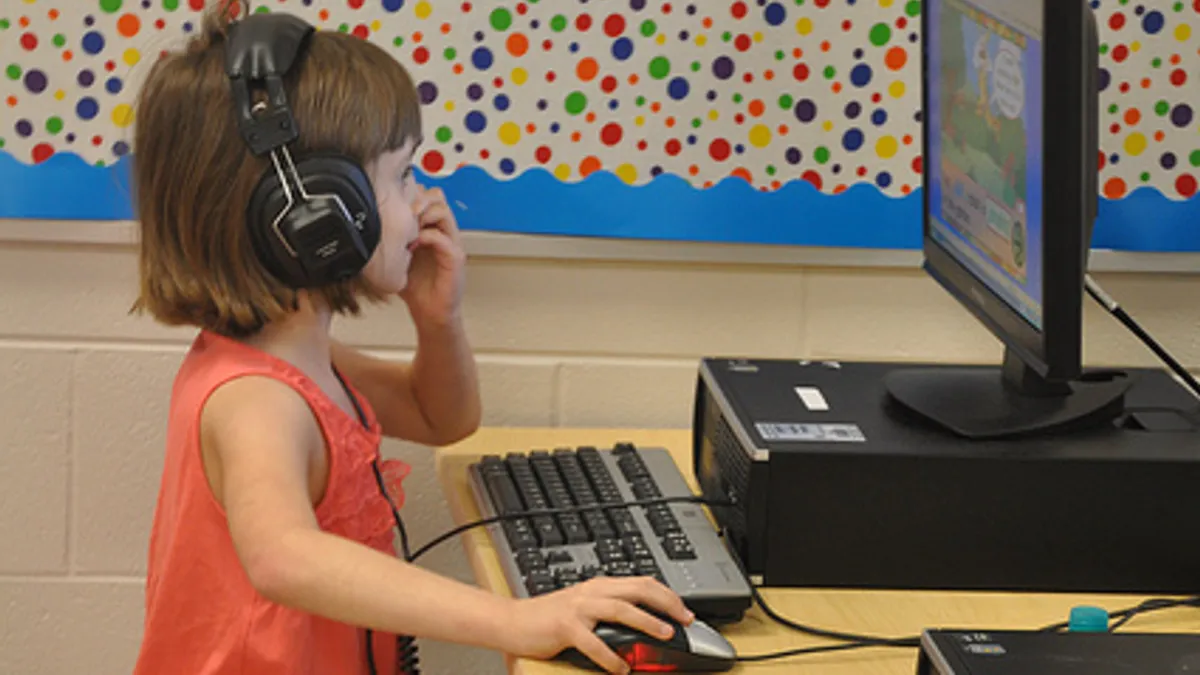Dive Brief:
- In a joint petition statement released Wednesday by Defending the Early Years and the Campaign for a Commercial-Free Childhood, dozens of early-childhood education experts and advocates expressed alarm at the growth of online preschool programs that are being used primarily by parents who cannot access traditional preschool because of cost factors or lack of access to high-quality programs, according to the Hechinger Report.
- The petition warns that online preschool programs can lead to excess exposure to screens for that age group, resulting in behavior problems, sleep deprivation, delays in the social-emotional development of children and are poor substitutes for high-quality, in-person preschool programs that offer hands-on learning and the opportunity to build relationships.
- However, Claudia Miner, chief UPSTART officer for the Waterford Institute, cautions against treating all online preschool programs the same and points out that the popular UPSTART program encourages offline activities with parents and is a valuable supplement to online preschool or as a preschool replacement option for parents who don’t have access to preschool programs or prefer to keep young children at home.
Dive Insight:
The petition posted by Defending the Early Years and the Campaign for a Commercial-Free Childhood asserts that “virtual preschool may save states money, but it’s at the expense of children and families.” It also ends with a plea for universal preschool programs: “All children deserve high quality early education, and we call on local, state, and federal agencies and policymakers to reject online preschools and invest in fully-funded, relationship-based, universal prekindergarten programs with proven long-term benefits.”
The option of free universal preschool, however, is not currently available in most states and some researchers still question its benefits. Until states have enough resources to support universal preschool programs without cutting funds for K-12 efforts, online preschool may remain the best option for families who don’t have access to — or choose not to use—more traditional preschool programs. Even so, the concerns of the experts and educators who signed the petition do draw attention to some of the pitfalls of online programs and will likely influence how parents manage their children's screen time and think about more personal, hands-on educational activities as well.
School leaders have a vested interest in making sure that children in the community are kindergarten ready. Some superintendents are taking extra steps to connect with local early-childhood educators and encourage them to better prepare students for the challenges ahead. By making these community connections, superintendents can also encourage participation in district kindergarten readiness programs such as summer preschool programs or transitional kindergarten programs that help students who have not had access to high-quality preschool be better prepared for a classroom environment. These programs can sometimes be funded by special grants and can be valuable in helping students get off to the right start in their academic career.













